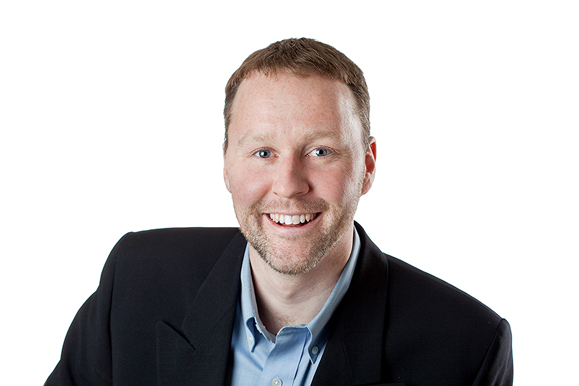By Emma Geldart
What constitutes the ÔÇ£perfect apple?ÔÇØ How do we grow the perfect apple and where do we find it?
Dr. Sean Myles and his team in the Myles Lab are looking closer at this. Dr. Myles, an assistant professor at ║┌┴¤│È╣¤═°ÔÇÖs Faculty of Agriculture and the Canada Research Chair in Agricultural Genetic Diversity, is looking at a number of different ways to accelerate the breeding of different plants and animals with desirable traits.
ÔÇ£Our research ranges from fundamental to applied,ÔÇØ Dr. Myles explains. ÔÇ£We develop novel analysis tools to get genetic information from plants and animals and look at their DNA. And we figure out ways to pick out the ÔÇÿwinnersÔÇÖ early in the breeding process and to toss out the ones that will never succeed in the market.ÔÇØ
 Originally from New Brunswick, Dr. Myles earned his Bachelor of Arts from Saint Thomas University. He then changed to science and completed his MasterÔÇÖs degree at Oxford University in England and a PhD at the Max Planck Institute for Evolutionary Anthropology in Germany. Dr. Myles then returned to the Maritimes alongside his wife to pursue his research career in genetics of plants and animals.
Originally from New Brunswick, Dr. Myles earned his Bachelor of Arts from Saint Thomas University. He then changed to science and completed his MasterÔÇÖs degree at Oxford University in England and a PhD at the Max Planck Institute for Evolutionary Anthropology in Germany. Dr. Myles then returned to the Maritimes alongside his wife to pursue his research career in genetics of plants and animals.
Dr. Myles explains that his team looks at DNA from plants and animals and chooses parents with desirable traits to use for breeding. Normally, hundreds or thousands of offspring are generated by a breeder but only a select few ever achieve commercial success. This process is laborious, time consuming, and expensive for breeders. Although Dr. Myles and his team are looking at a number of different plants and animals, such as grapes, mink, cacao, cannabis and salmon, Dr. MylesÔÇÖs focal organism is the apple. Dr. MylesÔÇÖs lab is housed in Kentville, Nova Scotia at the Atlantic Food and Horticulture Research Centre in the heart of the Annapolis Valley where the apple industry is thriving.
ÔÇ£Working out of the Kentville research station surrounds us with superb federal scientists and hundreds of acres of orchards and greenhouses,ÔÇØ Dr. Myles says. ÔÇ£We also work closely with breeders and growers who understand exactly how to make seed, grow seedlings and manage large apple orchards. I have a number of students and post docs working with me as well.ÔÇØ
With over 1,000 different apple varieties and 2,500 apple trees growing on site, Dr. MylesÔÇÖs team measures at least ten apples from each tree. The apples go through a machine that measures and analyzes weight, firmness, and acidity. The machine also extracts juice and pulp to be analyzed. The data is recorded automatically and saved using barcode readers. Once all the apples are analyzed, Dr. Myles and his team decide which fruits hold the most desirable traits. They analyze the DNA of the fruit and decide which varieties should be crossed together and used as parents in breeding programmes.
ÔÇ£Here in Kentville, we have established one of the most diverse collections of apples in the world,ÔÇØ Dr. Myles explains. ÔÇ£WeÔÇÖre trying to breed apples that are resistant to disease. If the apples are resistant to disease then growers wonÔÇÖt need to use as many chemicals which is more cost effective. We also want to develop apple varieties that are well-suited to Canadian growing conditions.ÔÇØ
Dr. MylesÔÇÖs end goal is to breed new crops faster and more efficiently.
ÔÇ£We want to be able to send better apples to the grocery store,ÔÇØ Dr. Myles says.
Ideally, Dr. Myles wants to be able to develop the perfect apple.
Recent News
- Holiday Hours
- From Academia to Agriculture: Former PhD student and supervisor launch innovative vertical farming venture
- Community Representative ÔÇæ Animal Care and Use
- New Face on Campus
- Sowing Seeds of Knowledge: A GardenerÔÇÖs Journey with DeAnne Pelchat
- ║┌┴¤│È╣¤═°Advising Summit
- Legacy Awards 2024
- Regenerative Agrourbanism
